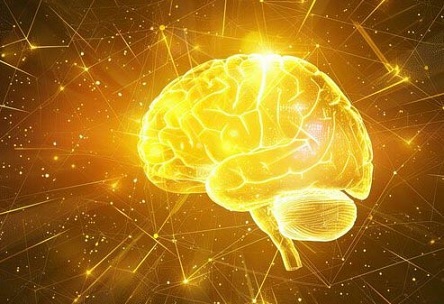New insights into brain injuries - How targeting a protein could revolutionize treatment for concussions
Nikhil Prasad Fact checked by:Thailand Medical News Team Jul 15, 2024 8 months, 2 weeks, 3 days, 16 hours, 52 minutes ago
Medical News: Researchers from the University of Pittsburgh-USA and the Veterans Affairs Pittsburgh Health Care System-USA have made a significant discovery about a protein that could play a crucial role in treating mild traumatic brain injuries (mTBIs). This
Medical News report delves into the study's findings, focusing on the NHE1 protein's role in repetitive mild TBI-mediated neuroinflammation and neurological function impairment.
 New insights into brain injuries - How targeting a protein could revolutionize
New insights into brain injuries - How targeting a protein could revolutionize
treatment for concussions
The Hidden Dangers of Mild Traumatic Brain Injuries
Mild traumatic brain injuries (mTBIs) are alarmingly common, especially among athletes in contact sports and military personnel. These injuries, often referred to as concussions, may seem minor at first but can lead to chronic behavioral and cognitive problems. Symptoms like headaches, dizziness, and confusion usually resolve quickly, but some people develop long-lasting issues, including cognitive deficits and damage to the brain's white matter.
In this study, the research team explored how the NHE1 protein could be a key player in these prolonged and often debilitating symptoms. The study's findings suggest that targeting this protein might offer new hope for better treatments.
Understanding the Role of NHE1 Protein
The study utilized a mouse model to mimic repetitive mild traumatic brain injuries (r-mTBIs). The researchers observed that the NHE1 protein's expression increased significantly in various brain cells after these injuries. These cells included GFAP+ reactive astrocytes, IBA1+ microglia, and OLIG2+ oligodendrocytes. This increase was associated with heightened neuroinflammation and the accumulation of amyloid precursor protein (APP), a marker of axonal injury.
Importantly, the study found that post-r-mTBI administration of HOE642, a potent NHE1 inhibitor, mitigated these effects. Mice treated with HOE642 showed fewer cognitive and motor deficits, reduced gliosis (a marker of brain inflammation), and less oxidative stress and axonal damage.
How the Study Was Conducted
Researchers conducted their experiments on young adult C57BL/6J mice, which underwent a series of five closed-skull concussions to simulate repetitive mTBIs. The team carefully monitored the expression of the NHE1 protein and the resultant neurological effects. They noted a significant rise in NHE1 levels in various brain regions post-injury.
The study then tested the efficacy of the NHE1 inhibitor HOE642. Mice treated with HOE642 showed marked improvement in motor learning and spatial memory. This finding indicates that NHE1 upregulation contributes to the cognitive and motor impairments seen in mTBI cases.
Detailed Findings on NHE1 Inhibition
The study's detailed findings revealed that inhibiting NHE1 with HOE642 had several beneficial effects:
&n
bsp;
-Reduction in Gliosis: Gliosis, characterized by the proliferation of glial cells in response to brain injury, was significantly reduced. This reduction was evident in the cerebral cortex, corpus callosum, and hippocampus.
-Lower Oxidative Stress: The levels of oxidative stress markers were considerably lower in treated mice. Oxidative stress is known to exacerbate brain damage and hinder recovery.
-Improved Neurological Function: Treated mice exhibited better motor and cognitive performance in behavioral tests. These tests included the rotarod test for motor coordination and the y-maze test for spatial memory.
-Reduced Axonal Damage: There was a significant decrease in markers of axonal damage in the treated mice. This finding is crucial as axonal injury is a hallmark of mTBI.
Implications for Human Treatment
The implications of these findings are profound. If similar results can be replicated in humans, targeting the NHE1 protein could become a therapeutic strategy for treating mTBIs. This approach could help reduce the long-term cognitive and motor deficits that many mTBI sufferers experience.
Future Directions
The study opens several avenues for future research. One critical area is the potential for developing drugs that can specifically target and inhibit the NHE1 protein in humans. Additionally, further studies are needed to understand the exact mechanisms by which NHE1 contributes to neuroinflammation and axonal damage.
The research team also highlighted the need for exploring how different dosages and timing of HOE642 administration could optimize therapeutic outcomes. These studies could lead to more precise and effective treatment protocols for mTBIs.
Conclusion
This groundbreaking study by researchers from the University of Pittsburgh and the Veterans Affairs Pittsburgh Health Care System sheds light on the potential of NHE1 protein inhibition as a treatment for repetitive mild traumatic brain injuries. By reducing neuroinflammation, oxidative stress, and axonal damage, inhibiting NHE1 could improve the quality of life for those affected by mTBIs.
The study findings were published in the peer-reviewed journal: Antioxidants.
https://www.mdpi.com/2076-3921/13/7/836
For the latest on Brain research, keep on logging to Thailand
Medical News.
Read Also:
https://www.thailandmedical.news/news/dmp1-expressing-brain-cells-regulate-the-blood-brain-barrier
https://www.thailandmedical.news/news/mir-195-5p-for-brain-hemorrhage-recovery
